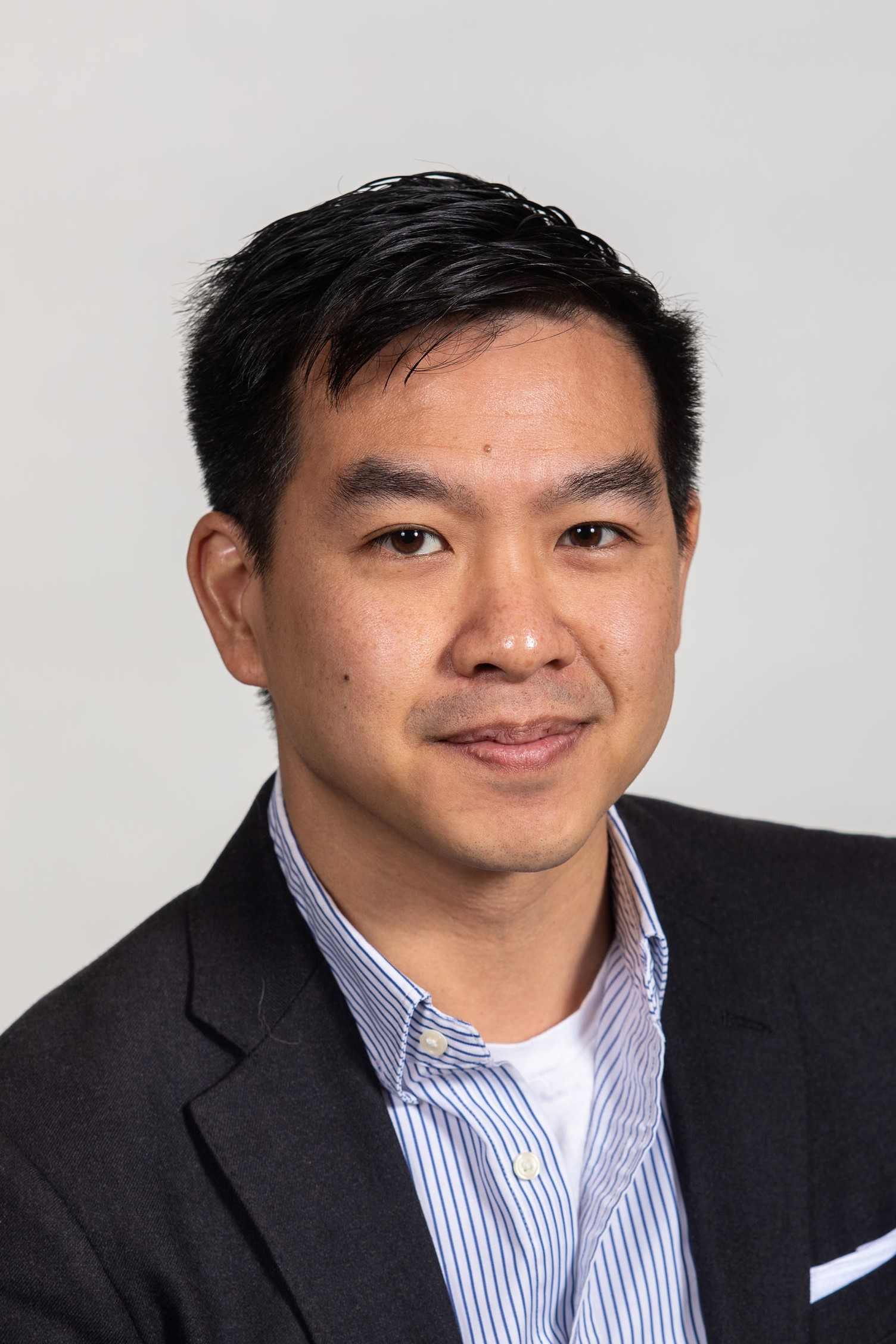Course Synopsis
The demand for evidence-based interventions to address mental health difficulties in adults has outpaced available community services. This workshop is designed for allied mental health practitioners assigned to mild and moderate mental health cases to deepen their expertise in Clinical Practice and Cognitive Behavioural Therapy (CBT) while working with adult populations. Participants will explore basic psychological theories, practice counselling skills and motivational interviewing, and discuss ethical practices in mental health.
In addition, participants will explore the theoretical foundations of CBT and delve into case formulations and interventions for adults with mood and anxiety disorders, obsessive compulsive disorders, psychosis and insomnia. The training will emphasize hands-on learning through active participation in role-play exercises, discussion groups, etc. to refine their knowledge and skills in clinical practice and apply it to their respective contexts. The training will culminate in supervised practice group sessions, allowing participants to refine their CBT skills in their respective service contexts.
Learning Outcomes
The learning outcomes for each day of training are as follows:
| Day |
Module Topic |
Learning Outcome |
| 1 |
Basic Psychological Theories |
- Know and describe the key concepts and principles of cognitive, behavioural and bio- psycho-social models in Psychology
- Know and be able to apply the different cognitive, behavioural and bio-psycho-social models in Psychology to case studies
|
| 2 |
Motivational Interviewing (MI) (theory and practice) |
- Demonstrate client-centred counselling skills such as open-ended questions, affirmation, reflective listening and summaries (OARS)
- Demonstrate effectively use of the DARN-CAT framework to recognize, elicit and respond to change talk
- Demonstrate the key principles of the Transtheoretical model of Behavioural Change (TTM)
- Recognize client’s readiness to negotiate a change plan, and develop a change plan collaboratively
|
| 3 |
Ethical Practices in Mental Health |
- Understand the SPS Code of Ethics in clinical, legal, and ethical practices
- Identify the different types of ethical issues and dilemmas in professional practice
- Understand the professional duty to report ethical issues, misconduct and discriminatory behaviour
- Understand the importance of collaboration with other professionals and/or service agencies in achieving the goals of care
- Understand the importance of reflexive practice and self-care in professional practice
- Understand the provisions and key principles of the Mental Health (Care and Treatment) Act (MHCTA/MDTA)
- Understand the provisions and key principles of the Mental Capacity Act (MCA), Lasting Power of Attorney (LPA) and the Advanced Medical Directive Act (AMD)
|
| 4 |
Mood Disorders |
- Describe the definition, etiology, signs (observable features) and symptoms of mood disorders, anxiety disorders, obsessive-compulsive disorders, psychosis, schizophrenia and insomnia.
- Facilitate the right siting of care and escalate clients to appropriate levels of care.
- Solicit background information and elicit negative automatic thoughts to use in clinical conceptualization.
- Interpret appropriate screening and assessment tools (e.g., DASS-21,PHQ-9, BDI-II, WHODAS 2.0, CGI, YBOCS, GAD-7, SCI, GCES, etc.).
- Conceptualize mental health difficulties based on the 4Ps of the biopsychosocial framework.
- Use a cognitive-behavioural formulation for mood disorders.
- Use (joint) formulations and relevant clinical guidelines to implement appropriate and flexible evidence-based interventions.
- Demonstrate ability to set goals together with clients and implement a treatment plan.
- Demonstrate knowledge on how to monitor evidence-based intervention plans.
- Design psychoeducation programmes for clients and caregivers.
- Understand cognitive and behavioural techniques for therapy.
- Demonstrate a plan for termination in therapy using principles of generalization and relapse prevention.
|
| 5 |
Anxiety Disorders and Obsessive-compulsive disorders |
| 6 |
Psychosis, Schizophrenia and Insomnia |
| 7 |
Post-workshop group supervision sessions |
- Know and demonstrate reflective practice and self-development by utilizing peer supervision as a platform for self-reflection, self-awareness, and ongoing learning.
- Know and demonstrate insights into their own practice, identify areas for growth, and implement strategies for professional development and improvement.
|
This Professional Certificate consists of six training days covering a range of topics followed by group supervision sessions:
- Day 1: Basic Psychological Theories
- Day 2: Motivational Interviewing
- Day 3: Ethical Practices in Mental Health
- Day 4: Mood Disorders
- Day 5: Anxiety Disorders and Obsessive-compulsive disorders
- Day 6: Psychosis, Schizophrenia and Insomnia
- Post-workshop group supervision sessions (4 sessions x 1.45 hrs)
Dates and Time
- Day 1: Tuesday, 3 March 2026
- Day 2: Wednesday, 4 March 2026
- Day 3: Friday, 6 March 2026
- Day 4: Tuesday, 17 March 2026
- Day 5: Wednesday, 18 March 2026
- Day 6: Friday, 20 March 2026
- Post-workshop group supervision sessions: March – July 2026
Classes will be conducted from 9 am to 5:30 pm.
Training Venue
Classes will be conducted face-to-face in the Faculty of Arts and Social Sciences, NUS.
About The Trainers

Dr Kean J. Hsu
Assistant Professor, National University of Singapore
Education
Ph.D. (Southern California)
M.A. (Southern California)|
B.A. (Hons) (Yale)
Kean J. Hsu, Ph.D., is an Assistant Professor in the Department of Psychology at National University of Singapore. His research investigates how basic cognitive processes (e.g., attention, executive functioning) impact the etiology and exacerbate symptom severity of depression and anxiety. He is also interested in scalable mental health interventions (e.g., cognitive training, brief interventions) and examining mechanisms underlying psychotherapeutic interventions, as well as increasing awareness of issues surrounding mental health and stigma in communities that are typically under-served or under-utilize mental health services. Clinically, Kean specialises in the treatment of depression, anxiety disorders, and stress in adults.
Kean completed a B.A. with honours in psychology (with a behavioural neuroscience specialization) at Yale University before receiving his Ph.D. in clinical psychology at the University of Southern California in 2014. He completed postdoctoral research fellowships at McLean Hospital/Harvard Medical School, the University of California, Los Angeles, and the University of Texas at Austin. He previously co-directed the Anxiety and Stress Clinic with Jasper Smits, Ph.D., at UT- Austin. Most recently, Kean was an Assistant Professor in the Department of Psychiatry at Georgetown University.
Recent/Representative Publications:
- Hsu,K.J.,Shumake,J.,Caffey,K.,Risom,S.,Labrada,J.,Smits,J.A.J.,...Beevers, C. G. (2020, September 30). Efficacy of Attention Bias Modification Training for Depressed Adults: A Randomized Clinical Trial. https://doi.org/10.31234/osf.io/btmfy
- Hsu, K.J., McNamara, M., Shumake, J., Stewart, R., Labrada, J., Alario, A., Gonzalez, G.D.S., Schnyer, D.M., & Beevers, C.G. (2020). Neurocognitive predictors of self-reported reward responsivity and approach motivation in depression: a data-driven approach. Depression and Anxiety, 37(7), 682-697. Doi: 10.1002/da.23042
- Hsu,K.J.,&Davison,G.C.(2017).Compoundeddeficits:theassociationbetween neuropsychological impairment and attention biases in currently depressed, formerly depressed, and never depressed individuals. Clinical Psychological Science, 5(2), 286-298.

Dr Kenji Gwee
Senior Lecturer, National University of Singapore
Dr. Gwee is a perceptive clinician and a passionate educator. With over 18 years of experience as a clinical forensic psychologist at the Institute of Mental Health, he is well versed with psychological issues and life challenges that adults and youths face.
On the forensic front, he has provided expert testimony for high-profile criminal cases and set various standards for psychological assessments for local courts. He obtained his doctorate from Edith Cowan University in Perth, Australia.
On top of teaching and training new psychologists, he also enjoys providing:
- Psychological therapy and assessments
- Consultation to lawyers and the courts
- Consultation to mental health professions
- Clinical supervision

Dr Lohsnah Jeevanandam
Senior Lecturer and Director of Clinical Psychology Programme, National University of Singapore
Education
D.Clin.Psych (University of Queensland)
BA (Hons) (University of Sydney)
Research Interests
- Developmental disabilities
- Dual diagnosis
- Behavioral modification
- Parenting programmes
Recent/Representative Publications
- Jeevanandam, L. & Toh, A. (2021). The Singapore Psychological Society Code of Ethics: The Beginning, the Current, and the Future. In K.L. Parsonson. (Ed.). Handbook of International Psychology Ethics. Routledge.
- Jeevanandam, L. (2021). Sexuality Development in Persons with Intellectual Disability: A Singapore Perspective. In M.E Wong & L.Lim (Eds.). Special Needs in Singapore (pp 309-322). Singapore: Work Scientific Publishing Co. Pte. Ltd.
- Goh, P.S., Goh, Y.W., Jeevanandam, L., Nyolczas, Z., Kun, A., Watanabe, Y., Noro, I., Wang, R. and Jiang, J. (2021), Be happy to be successful: a mediational model of PERMA variables. Asia Pac J Hum Resour. https://doi.org/10.1111/1744-7941.12283

Dr Hasse De Meyer
Lecturer, National University of Singapore
Education
Ph.D. (KU Leuven)
M.Sc. Clinical and Health Psychology (KU Leuven)
B.Sc. Psychology (KU Leuven)
Dr. Hasse is a Clinical Psychologist with a Master’s and Ph.D. degree from KU Leuven (Belgium) and recent work experience as a lecturer and Clinical Psychologist in Kuala Lumpur (Malaysia) from 2019 until early 2022. Prior, she combined her Ph.D. research with clinical work at KU Leuven’s academic outpatient mental health clinic in Belgium. She primarily works with children and adolescents and specialise in assessing and treating behavioral, social, and emotional problems. Her largest expertise and area of interest lies in Attention Deficit Hyperactivity Disorder (ADHD). More specifically, she uses experimental tasks to study underlying deficits in reinforcement learning and potential remediation strategies in children with ADHD. More recently, she conducted studies on well-being during Covid-19 and parenting styles in children with Autism Spectrum Disorder, and she have ongoing research projects in Japan and Belgium on reinforcement learning in children with ADHD.
Currently, she is teaching and supervising Master's level students in the NUS Clinical Psychology program.
Recent/Representative Publications:
- De Meyer, H., Tripp, G., Beckers, T. & Van der Oord, S. (2021). Conditional Learning Deficits in Children with ADHD Can Be Reduced Through Reward Optimization and Response-Specific Reinforcement. Research on Child and Adolescent Psychopathology. doi.org/10.1007/s10802-021-00781-5
- Hulsbosch, A.K., De Meyer, H., Beckers, T., Danckaerts, M., Van Liefferinge, D., Tripp, G. & Van der Oord, S. (2021) Systematic Review: ADHD and Instrumental Learning. Journal of the American Academy of Child and Adolescent Psychiatry. doi.org/10.1016/j.jaac.2021.03.009
- De Meyer, H., Ufiya, F., & Ng, S. L. (2021). Psychosocial and demographic predictors of mental health and distress. In G. J. Louis, S. Kaur, & H. F. Cheong (Eds.), COVID-19 and Psychology in Malaysia (pp. 39-53). Routledge Focus.

Dr Nur Hani Zainal
Assistant Professor, National University of Singapore
Education
Ph.D. (Penn State)
M.Sc. (Penn State)
B.Soc.Sci. (Hons.) (NUS)
Dr Hani is a Presidential Young Professorship (PYP) Assistant Professor in Clinical Psychology at the National University of Singapore (NUS) and the Director of the Optimizing Wellness (OWL) Lab.
She completed a two-year postdoctoral research fellowship at Harvard Medical School (HMS), received her Ph.D. in Clinical Psychology from The Pennsylvania State University, and completed her predoctoral clinical fellowship at the HMS-affiliated Massachusetts General Hospital (MGH) in the Cognitive Behavioral Scientist Track.
Her research centers on technology-facilitated interventions, particularly digital mental health interventions (DMHIs), and she is especially interested in identifying the predictors, moderators, and mediators that influence their effectiveness. Beyond this, she investigates how neurocognitive processes, psychoneuroimmunology, and cognitive-behavioral strategies contribute to the etiology, maintenance, and treatment of anxiety and depressive disorders. To advance these aims, she draws on a range of approaches and datasets, including cross-sectional and longitudinal surveys, basic science experiments, ecological momentary assessments, and prospective cross-panel designs.
She hopes to make novel and positively impactful contributions to both basic science and translational clinical research and practice. Moreover, she is grateful to have received several awards that have supported her career, including the Association for Behavioral and Cognitive Therapies (ABCT) Leonard Krasner Dissertation Award, the Anxiety and Depression Association of America (ADAA) Alies Muskin Career Development Leadership Program (CDLP), and the Pennsylvania State University (PSU) Superior Teaching and Research (STAR) award.
Recent/Representative Publications:
- Zainal, N. H., Wang, V., Garthwaite, B., & Curtiss, J. E. (2025). What factors are related to engagement with digital mental health interventions (DMHIs)? A meta-analysis of 117 trials. Health Psychology Review, 26, 1–21. https://doi.org/10.1080/17437199.2025.2547610
- Zainal, N. H., Soh, C. P., Van Doren, N., & Benjet, C. (2024). Do the effects of internet-delivered cognitive-behavioral therapy (i-CBT) last after a year and beyond? A meta-analysis of 154 randomized controlled trials (RCTs). Clinical Psychology Review, 114,102518. https://doi.org/10.1016/j.cpr.2024.102518
- Zainal, N. H., Liu, X., Leong, U., Yan, X., & Chakraborty, B. (2024). Bridging innovation and equity: Advancing public health through just-in-time adaptive interventions (JITAIs). Annual Review of Public Health, 46(1), 46-68. https://doi.org/10.1146/annurev-publhealth-071723-103909

Dr Matthew Lim
Senior Lecturer, Deputy Director and Curriculum Coordinator, Clinical Psychology Programme, National University of Singapore
Education
D.Clin.Psy (University College London)
D.Phil (University of Oxford)
Matthew completed his first degree in psychology at NUS. He later read a doctorate at the Department of Psychiatry, Oxford University, with a research focus on gambling-related cognitive vulnerabilities. His subsequent professional clinical doctorate was completed at University College London. Matthew wrote a doctoral thesis on recovery-based outcome measurement among Vietnamese refugees living in the UK as part of his clinical training. Upon graduation, Matthew returned to his alma mater, NUS, and received an early career award with his previous senior tutorship appointment at the Department of Psychology.
Matthew teaches and supervises on the masters in clinical psychology programme in NUS and received a faculty teaching award in 2021 for his teaching excellence. Matthew’s clinical and consultancy work has been informed by behavioural, cognitive, systemic and psychoanalytic ideas and contemporary "third-wave" meditative practices.
Matthew's research programme aims to develop local clinical psychology competency frameworks in specialist areas not covered by the SkillsFuture national guidelines. The masters and doctoral students he supervises have embarked on projects to articulate the competencies required in the following practice domains: mental health in disabilities, clinical health psychology, reflective practice, and clinical supervision. Findings from this research programme inform the curriculum design and assessment rubrics of professional courses in NUS.







